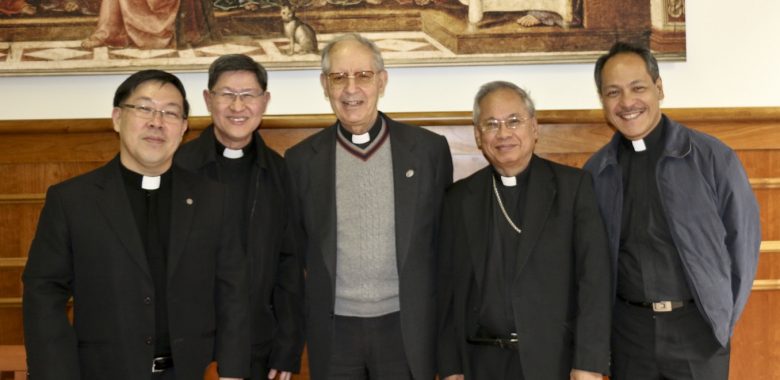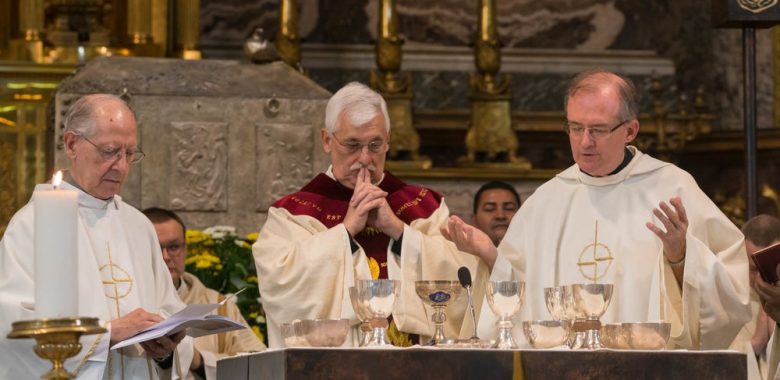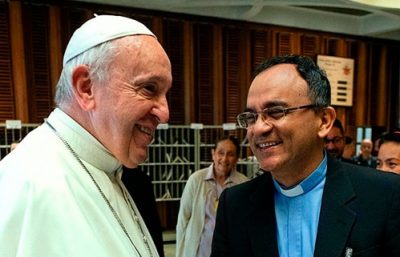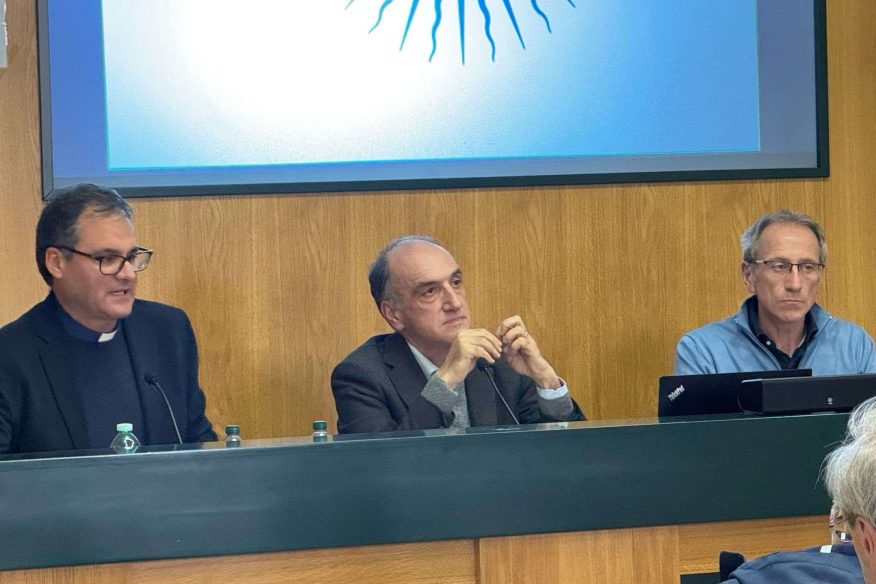Ignatian leadership: testimonies from Asia, Usa and South America
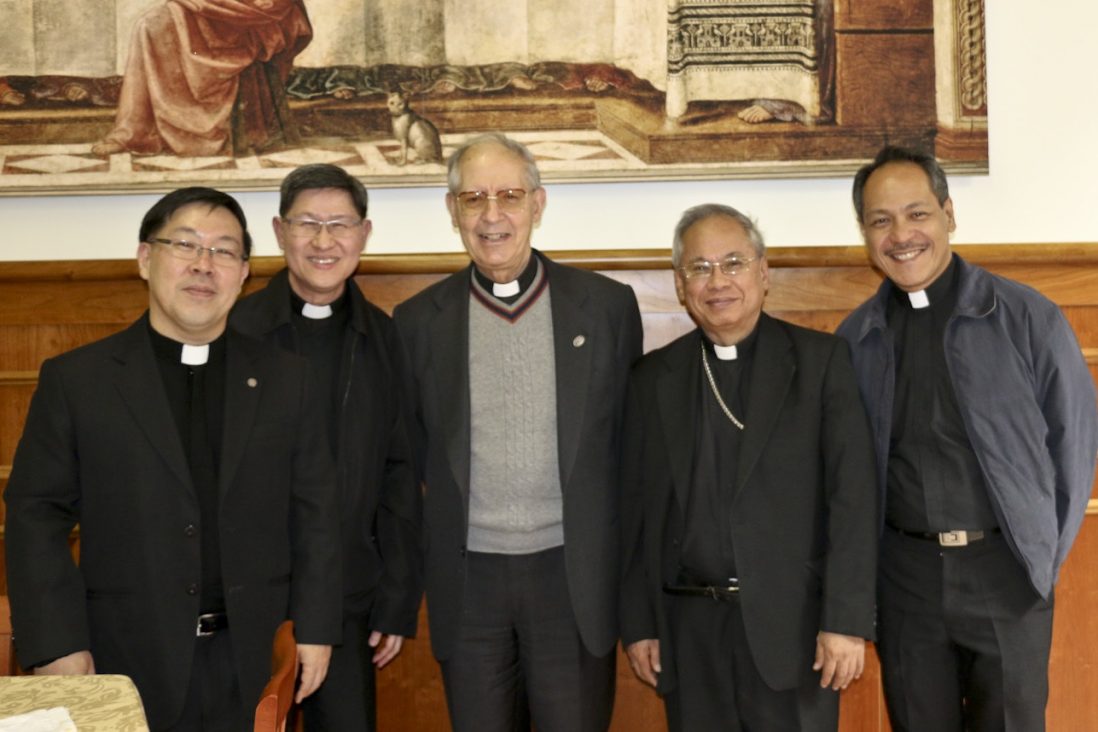
Special days at the Gregorian University on leadership theory and foundations of institutional organizational science, to accompany those who work on a local and global scale, in roles of responsibility and service.
Three teachers from the Gregorian University, holding positions of responsibility and governance within the Society of Jesus, are the voices and witnesses of a leadership that is rooted in the history and culture of the Americas (and in particular Brazil and the United States) and of Asia Pacific.
The sixty participants of the annual course leading to the Diploma in Leadership and Management, organized by the Faculty of Social Sciences and the Alberto Hurtado Faith and Culture Centre of the Gregoriana, were able to listen to their witness on 12 December, thanks to the opportunity of integrated teaching, streamed online by Fr. Stefano Del Bove SJ, program director, and by Prof. Marco Accorinti.
The inputs cover one third of the monthly study days, which from October to June constitute the integrated theoretical formation part of the leadership course and the basics of the sciences of institutional organization, to accompany those who work on a local and global scale, towards the improvement of knowledge and skills appropriate to the roles of responsibility and service they are assigned to in their countries of origin and churches to which they belong. Among these participants this year forty hail from the Italian institutional, business and association world.
Fr. Daniel Huang SJ: leadership as a mission
The Asian connoisseur Fr. Daniel studied in Manila and New York. On the pastoral level he was stationed in the Philippines primarily as parish priest, then as consultor to the Provincial, rector of the seminary of Manila, and the Society’s Superior in the Philippines. He was also a point of reference of the General Curia for the Asia Pacific assistancy, serving the last two Generals. All this experience is behind his teaching at the Gregorian faculty of missiology. He is also a member of the Board of Directors of Georgetown University in Washington DC.
“Leadership is primarily about people. It is a mission not a promotion. Within the Society, titles of merit do not exist. When commitment to a service is terminated, it is over. This helps avoiding commitments becoming a personal affair”. Eight points were highlighted: “being aware of one’s weakness in order to be able to show mercy and compassion to others”. Cura personalis is one of the pillars of Ignatian leadership, “as it is always the subject of spiritual colloquy. Each Provincial” he says, “must receive a return of conscience from the Jesuits. The objective is to give spiritual and personal knowledge to the Superior, so that both can discern the mission together. This aspect is stemmed out of love. In my experience, Jesuits are like the stained-glass windows of a cathedral: from the outside they look grey but inside you see their beauty and colours”. It is important to have a profound understanding of people, and to know how to listen to them. Establish trust, “without trust there is no leadership”. The most vulnerable leader is one who is dependent on the opinion of others. “One must learn to accept that not everyone will consent to your decisions”.
There are four profiles of a leader: the charismatic who leads through the capacity of personality; the intuitive, who points to the future; the executive who excels in implementation, the caring who takes care of his subjects. “Ignatian leadership is a combination of all four, even if all these elements are rarely found in one person. It is beneficial to identify one’s strengths as well as to identify people who can compensate for one’s weaknesses”. It is important to recognize the responsibility that a leader carries on his shoulders. “The words and gestures of a leader can bear an influence which in normal circumstances they do not own”. Let us form our successive leaders.
Fr. James Grummer SJ: “knowing oneself and others”
Passionate reader of Roberto Bellarmino during his years of formation in the USA, Fr. James Grummer lived in environments that were not always Catholic. He lectured on historical studies and remains at the humanities university: among his in-depth studies there are also the stories of German-speaking Catholic immigrants. In the USA he was community superior, chaplain, socius to the provincial and provincial of an important area of the country with 2 universities, 3 colleges, missions, parishes and retreat houses. He was in charge of international relations with South Korea, various African countries, and Ecuador. Then in the Roman Curia he was responsible for the entire North American assistancy. For some years now he has been Superior of the Jesuits at the Gregorian, and director of the centre for Ignatian spirituality.
In his witness he invites his listeners to “enter into the experiences of others, like Jesus. Let go of worrying of what others think, because everything depends on the Father and commit yourself to creating paths of collaboration. Be the leader you are, use your talents instead of envying the talents of others. Cherish the beauty of others and of the world, to be valued as a gift for which we are responsible “.
Fr. Adelson Dos Santos SJ: a style of permanent conversion
Fr. Adelson Dos Santos studied law, theology, and spirituality. He was the Director of a retreat and formation house in Manaus, and spiritual director of the Scholastics studying Philosophy in Belo Horizonte. Now he holds positions of responsibility in the Amazon (he was recently also called to the Synod on the Amazon) and delegate for formation of the Brazilian Province. He directs the Favre Centre for formators in consecrated life and the priesthood at the Gregoriana.
“The true leader is formed through the inner life, through self-knowledge, and through a clear vision of the world. This leads to a greater understanding of others as well”. “Like Ignatius” he adds, “we must seek the means that help in discernment, in self-knowledge, in deepening our knowledge of the reality that surrounds us. As the first Jesuit missionaries testify, we are called to evangelize through dialogue, without attacking or eradicating traditions, cultures, even from a religious point of view”. The challenge is always the same. “I grew up in Manaus, a missionary church. Very few of those born there later became religious, or priests. The church is always a missionary church among the indigenous peoples, a current frontline always recalled by Pope Francis during his pontificate. In Rio in 2013 during WYD I remember him greeting a group of Jesuits. The Amazon is in my heart he told me. Six years after, the synod took place”. This is his invitation, to “let oneself be enriched by the experiences of others even if I am the leader”. As in the film The Mission (1986) the Jesuits went all the way in their mission. We have to go through a process of conversion, a crucial word in Pope Francis’ speech. The world is our common home, everything is connected. The change starts from the heart, from the motivations, the will and the deep desires that are within each one “.
